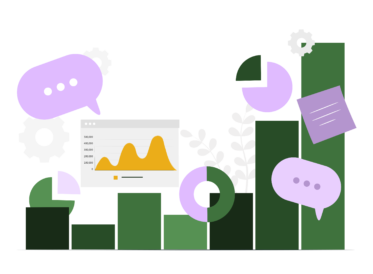The benefits of data management for businesses
Developing a data management strategy is a marathon, not a sprint. Data should be reassessed continuously over months/years in order to monitor changes in your consumer base so you can proactively respond and adapt. By learning consumer habits and employing predictive analytics, businesses can offer more efficient access to the information that customers want. Efficient access encourages repeat business and results in happy consumers!
Using powerful analytics software, businesses can create engaging dashboards that visually display key information to stakeholders (or anyone else who needs to see it). Distilling data into easy-to-use, insightful datasets means that you can cut out the faff and focus on the important decisions.
Data can be used for far more than just marketing. Using sustainability data allows businesses to identify areas of inefficiency. It’s important for businesses of every size to become more sustainable, efficient and profitable. Utilising proper Environment, Health and Safety (EHS) systems can help businesses mitigate threats to their people and the planet by adjusting internal processes to comply with regulations and safety standards.
How is data processed?
Business intelligence tools take the manual labour out of data management. Tools use AI and Machine Learning to quickly and efficiently sort and filter through vast quantities of data, allowing you to see only what you need. AI can learn what you want to see and extract specific, useful data in moments. It can be difficult to know whether the data you’re looking at is genuinely useful. By minimising human error, you can always be sure that the data that you’re using is meaningful and relevant at all times.

